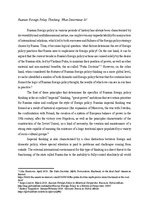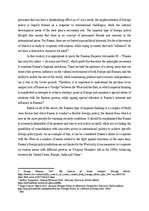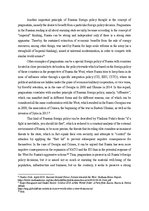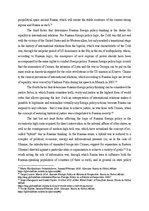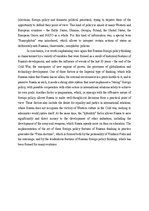-
Russian Foreign Policy Thinking: What Determines It?
In conclusion, it is worth emphasizing once again that Russian foreign policy thinking is characterized by a variety of variables that were formed as a result of historical features of Russia's development, and under the influence of events of the last 30 years – the end of the Cold War, the emergence of new regions of power, the processes of globalization and
technology development. One of these factors is the Imperial type of thinking, which tells Russian rulers that Russia has no allies, the external environment is a priori hostile to it, and to
preserve Russia as such, it needs a strong state system that must implement a “strong” foreign policy, with possible cooperation with other actors in international relations solely to achieve its own goals. Another factor is pragmatism, which, in synergy with the offensive nature of foreign policy, allows Russia to make well-thought-out decisions from a practical point of view. These factors also include the desire for equality and justice in international relations, where Russia does not recognize the victory of Western culture in the Cold war, seeking to administer world justice itself. At the same time, the “hybridity” factor allows Russia to save
significantly and direct money to the development of other industries, including the development of the army and weapons, which Russia spends more on than on education.…
Russian foreign policy in various periods of history has always been characterized by its versatility and multidimensional nature, one might even say unpredictability for many actors of international relations, which led to both successes and failures of the foreign policy strategy chosen by Russia. Thus, it becomes logical question: what factors determine the set of foreign policy practices that Russia uses to implement its foreign policy? On the one hand, it can be argued that the current trends in Russia's foreign policy actions are caused solely by the desire of the Russian elite, led by Vladimir Putin, to maintain their position of power, as well as other material and non-material benefits, the so-called “Putin Doctrine”. However, on the other hand, when considered the features of Russian foreign policy thinking on a more global level, it can be identified a number of both domestic and foreign policy factors that for centuries have formed the logic of Russian foreign policy thought, the results of which we can see in our time in practice. The first of these principles that determines the specifics of Russian foreign policy thinking is the so-called “imperial” thinking, “great-power” ambitions that set certain priorities for Russian rulers and configure the style of foreign policy. Russian imperial thinking was formed as a result of historical experience (the expansion of Moscovia, the war with Sweden, the confrontation with Poland, the creation of a system of European balance of power in the 19th century, after the victory over Napoleon, as well as the principles characteristic of the construction of the Soviet Union), as a kind of necessity, the creation and maintenance of a strong state capable of ensuring the existence of a huge territorial space populated by a variety of socio-cultural groups.
PDF formāts.

